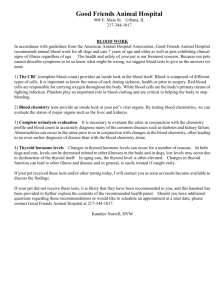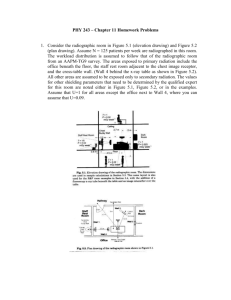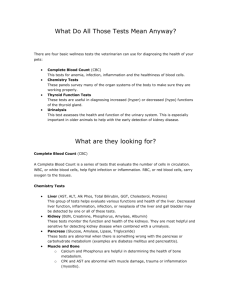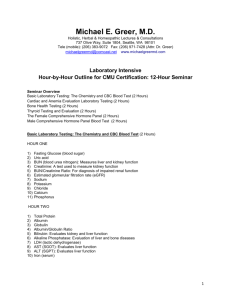Lab assessment
advertisement
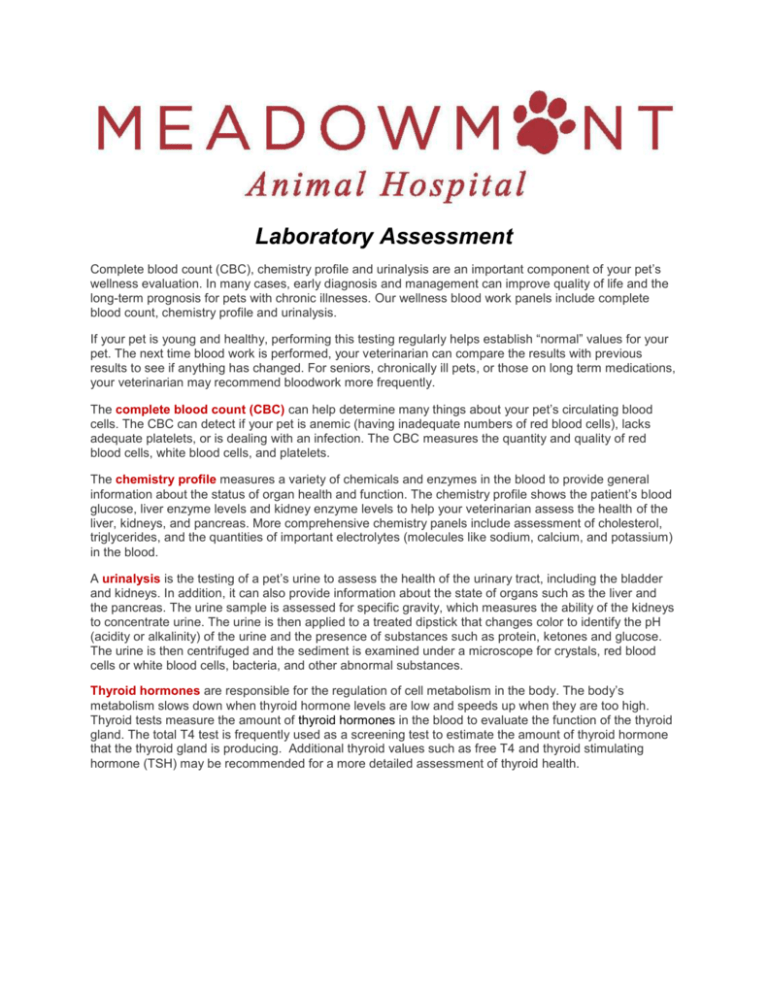
Laboratory Assessment Complete blood count (CBC), chemistry profile and urinalysis are an important component of your pet’s wellness evaluation. In many cases, early diagnosis and management can improve quality of life and the long-term prognosis for pets with chronic illnesses. Our wellness blood work panels include complete blood count, chemistry profile and urinalysis. If your pet is young and healthy, performing this testing regularly helps establish “normal” values for your pet. The next time blood work is performed, your veterinarian can compare the results with previous results to see if anything has changed. For seniors, chronically ill pets, or those on long term medications, your veterinarian may recommend bloodwork more frequently. The complete blood count (CBC) can help determine many things about your pet’s circulating blood cells. The CBC can detect if your pet is anemic (having inadequate numbers of red blood cells), lacks adequate platelets, or is dealing with an infection. The CBC measures the quantity and quality of red blood cells, white blood cells, and platelets. The chemistry profile measures a variety of chemicals and enzymes in the blood to provide general information about the status of organ health and function. The chemistry profile shows the patient’s blood glucose, liver enzyme levels and kidney enzyme levels to help your veterinarian assess the health of the liver, kidneys, and pancreas. More comprehensive chemistry panels include assessment of cholesterol, triglycerides, and the quantities of important electrolytes (molecules like sodium, calcium, and potassium) in the blood. A urinalysis is the testing of a pet’s urine to assess the health of the urinary tract, including the bladder and kidneys. In addition, it can also provide information about the state of organs such as the liver and the pancreas. The urine sample is assessed for specific gravity, which measures the ability of the kidneys to concentrate urine. The urine is then applied to a treated dipstick that changes color to identify the pH (acidity or alkalinity) of the urine and the presence of substances such as protein, ketones and glucose. The urine is then centrifuged and the sediment is examined under a microscope for crystals, red blood cells or white blood cells, bacteria, and other abnormal substances. Thyroid hormones are responsible for the regulation of cell metabolism in the body. The body’s metabolism slows down when thyroid hormone levels are low and speeds up when they are too high. Thyroid tests measure the amount of thyroid hormones in the blood to evaluate the function of the thyroid gland. The total T4 test is frequently used as a screening test to estimate the amount of thyroid hormone that the thyroid gland is producing. Additional thyroid values such as free T4 and thyroid stimulating hormone (TSH) may be recommended for a more detailed assessment of thyroid health.
